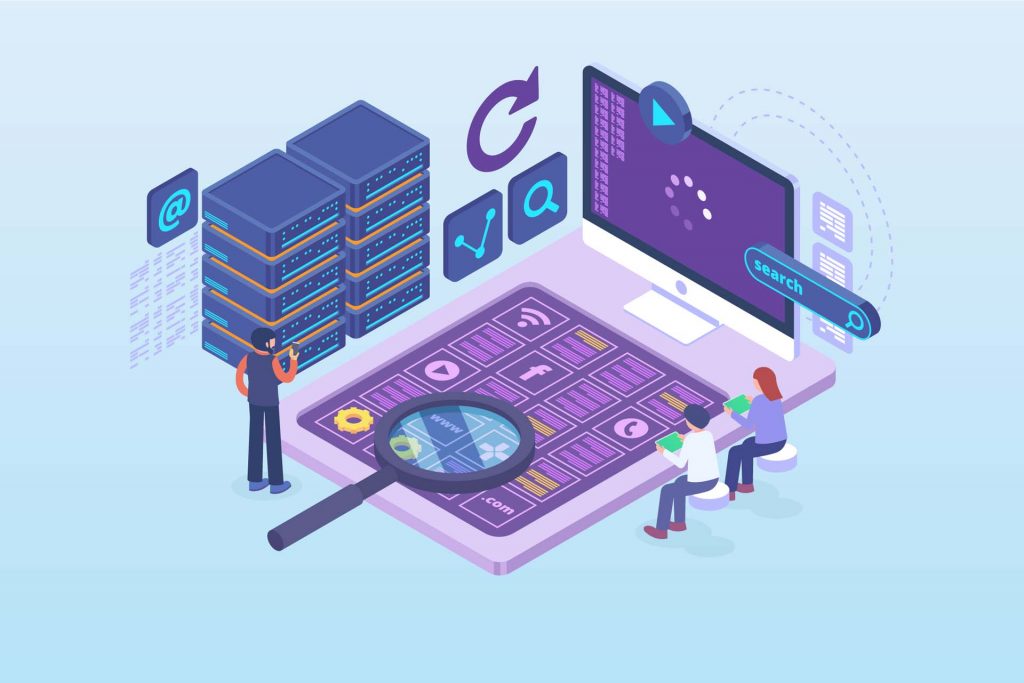When it comes to digital marketing, there are plenty of acronyms thrown around that can be hard to understand – including SEO, SEM, CRM and EDM (not to be confused with the music style). In today’s blog, we take a look at SEM vs SEO, and why you should be using both if you want to get website ranking higher.
SEM vs SEO: What's the difference?
What is SEO?
SEO or ‘Search Engine Optimisation’ refers to organic search engine results. When you search a keyword, Google, and Bing use bots to crawl the web, finding websites that match your query. But considering there’s billions of possible choices, crawlers need to narrow down the results using a select criteria. The role of an SEO expert is to figure out what potential customers are looking for and craft a strategy that makes a website noticeable by crawlers.
Want to discuss ‘what is SEM and SEO’ in person? Chat to a Brisbane SEO expert today by calling 1300 659 035.
What is search engine crawling?
Search engine crawling refers to the website discovery process. Whenever a person searches something on the web, billions of bots search for relatable, updated content that is related to that search query. Once a page is crawled, a search engine will index and rank content, choosing an order of most relevant (first page results) to least relevant.
Some factors that increase the chance of a website being prioritised include:
- Domain authority – How old a website is and how many quality websites link to it.
- Keyword usage – The searched keyword appears on the website numerous times.
- Page load speed – The website loads quickly.
- User engagement – How long the average user spends on website.
- High quality content – Regularly updated content with keywords.
- Mobile friendliness – The website is optimised to fit small screens.
SEO can be broken into four categories:
On page SEO
On page SEO refers to the practice of optimising web pages to improve search engine visibility. This includes optimising title tags and meta descriptions, improving site speed, creating high quality content and structured mark up (marking up website source code to make it easier for Google to find).
Off page SEO
Off page SEO involves making your website look more credible by doing actions outside your website. The most common is link building, which involves adding the link of your website to various websites, or having websites link back to yours – with the better quality the link, the more value i.e., a government site links back to yours.
Technical SEO
Unlike on page SEO, which tries to think with the user intent in mind, technical SEO is strictly for crawlers. This includes creating instruction manuals for web crawlers (a robot txt file), building sitemaps, establishing SEO friendly navigation, and using a secure web server.
Local SEO
Local SEO is a branch of SEO designed to target nearby searchers – making it the perfect tool for customer facing businesses. This is all about notifying Google that your business operates in a certain area, which you can do by creating a Google My Business listing, obtaining reviews from happy customers and using local keywords i.e., digital marketing agency Brisbane. Social media can also have a big impact on local search results, which is why’s important to keep platforms regularly updated.
Talk more about ‘what is SEM and SEO’ in person by calling 1300 659 035 or emailing [email protected].
Difference between SEO and SEM: What is SEM?
SEM or ‘search engine marketing’ refers to using paid strategies to appear in search engine results. You can typically find paid results at the top of a search page, with the word ‘ad’ next to the copy.
PPC
PPC ‘Pay per click’ involves creating an ad that specifically targets keywords your audience is looking for. By using Google Keyword Planner, you can see how much volume certain keywords have and bid on the amount you’re willing to pay for one click. Depending on how competitive your keyword is, this could be anywhere from a $1 to hundreds of dollars. Unlike SEO, which takes months for a search engine to register, PPC can give you results straight away. However, once you stop using PPC, you won’t get any more results, whereas SEO is a more long term solution.
The three types of Google ad campaigns are:
Search Network:
The most common, these ads show on Google search results in the form of text.
Display Network:
These image based ads are shown on websites your customers visit (read more about remarketing here).
Video Campaigns:
These ads show before a YouTube video.
Difference between SEO and SEM
The biggest difference between SEO and SEM is that SEO is considered a long game strategy, whereas SEM often provides for quicker results. If you’re looking for instant results and are willing to pay every time a customer clicks, SEM is a great option. At Resurge Digital, we believe using both SEO vs SEM leads to the greatest success and ensures businesses can gain results both quickly and for the long run.
We hope our article on SEM vs SEO has answered all your questions.
If you’d like to discuss ‘What is SEM and SEO’ in person, you can give us a call on 1300 659 035, email [email protected] contact us via our online form and one of our Brisbane digital marketing experts will be in touch shortly.

